Places in the Heart (1984)

DIRECTOR: Robert Benton
CAST: Sally Field, Danny Glover, John Malkovich, Ed Harris, Lindsay Crouse, Amy Madigan
REVIEW:
Places in the Heart is two-thirds of a strong, involving Depression-era drama about a widow finding the wherewithal to do whatever she must to support her family with the help of an assortment of colorful characters. Alas, it’s also saddled with a superfluous third of a soap opera-esque love triangle between characters only tangentially related to the main storyline. What’s onscreen is still worth watching for fans of these kinds of low-key, true-to-life dramas, but a little more focus could have made for a more singularly powerful experience.
Continue readingIndiana Jones and the Temple of Doom (1984)
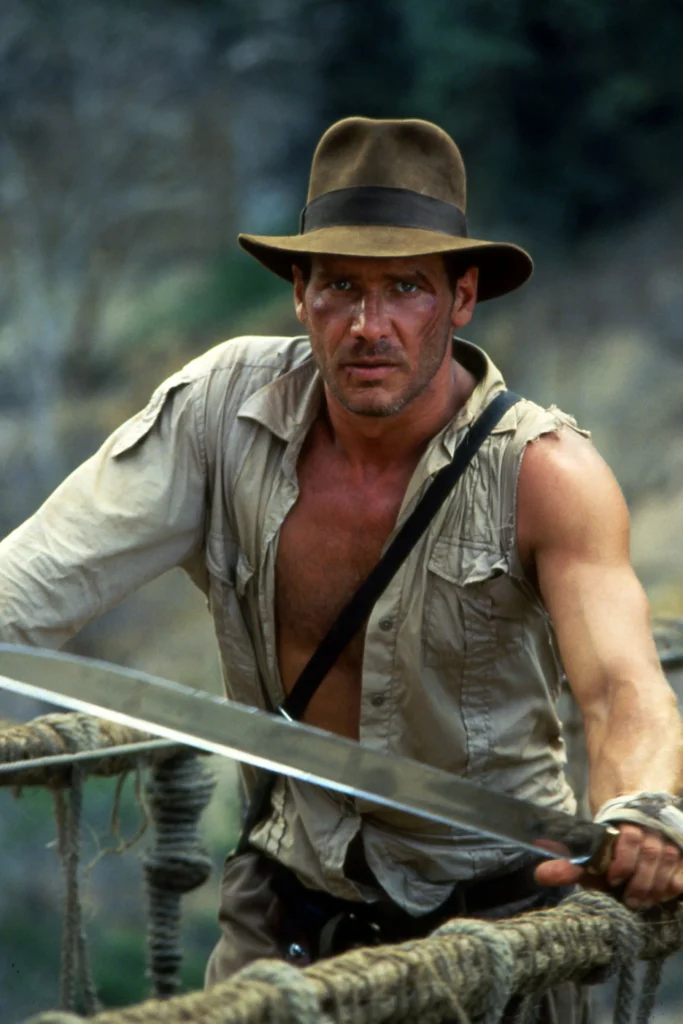
DIRECTOR: Steven Spielberg
CAST: Harrison Ford, Kate Capshaw, Ke Huy Quan, Amrish Puri, Roshan Seth, Philip Stone
REVIEW:
Just as the near-perfect action-adventure of 1981’s Raiders of the Lost Ark virtually guaranteed that more installments in what became the Indiana Jones series would follow, it was also perhaps inevitable that they would fall short of its high water mark. Temple of Doom is by no means a bad movie, and parts of it are as wildly entertaining as the best Raiders had to offer, but it lacks the perfect pacing and tonal balance of the first installment, and suffers by comparison. Continue reading
Das Boot (1981)
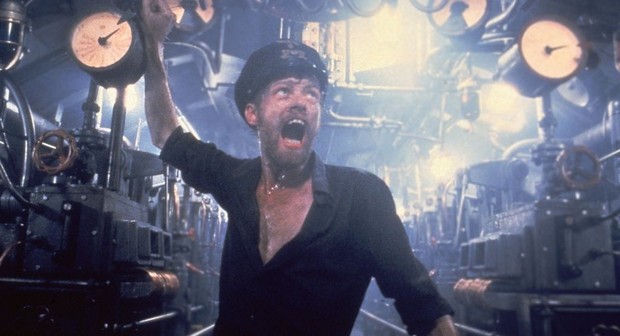
DIRECTOR: Wolfgang Petersen
CAST: Jurgen Prochnow, Herbert Groenemeyer, Hubertus Bengsch, Martin Semmelrogge, Klaus Wennermann, Bernd Tauber, Erwin Leder
REVIEW:
Hailed as possibly the best submarine film ever made, and one of the most honest and unromanticized portrayals of war, Wolfgang Petersen’s simply-titled magnum opus Das Boot (“The Boat” in English) features only adequate special effects and few and far between action sequences, but overcomes any limitations with uniformly authentic performances, Petersen’s direction, and the haunting, sometimes stirring but more often melancholy score by Klaus Doldinger.
Continue readingIndiana Jones and the Raiders of the Lost Ark (1981)
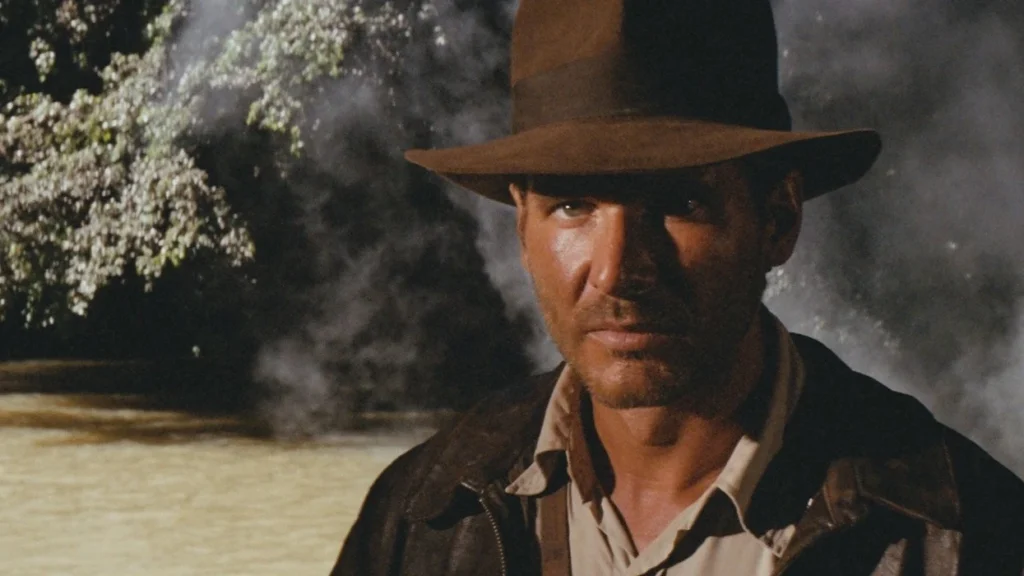
DIRECTOR: Steven Spielberg
CAST:
Harrison Ford, Karen Allen, Paul Freeman, Ronald Lacey, John Rhys-Davies, Denholm Elliott, Wolf Kähler, Anthony Higgins, Alfred Molina
REVIEW:
As a child in the 1940s, George Lucas was enthralled by the serials depicting the hero ending every week in a cliffhanger, only to make a death-defying return the next week. In 1977, fresh off his first Star Wars film, Lucas vacationed in Hawaii, where he met up with Steven Spielberg, who had likewise suddenly made a name for himself with 1975’s Jaws, and the two budding visionaries decided they needed to work together. Their first joint project became Raiders of the Lost Ark, which introduced theatergoers to the character of Indiana Jones, soon to become an iconic figure in American film, and transformed the genre of action movies. Before Indiana Jones, James Bond was the reigning model for action heroes and the films that showcased them to follow. Indiana Jones was a new kind of hero who at the same time hearkened back to the stars of the serials Lucas used as his inspiration. Unlike the debonair James Bond, Indy was a rugged, rough-and-tumble everyman (albeit an exceptionally skilled and daring one) who gets battered and bruised, wears “lived-in” clothes, and doesn’t always operate smoothly. He’s not invincible, and his narrow escapes are partly due to skill, partly due to luck, mostly due to brazen derring-do. Rarely does a film have us asking “how’s he going to get out of this?” more times than Raiders of the Lost Ark. Continue reading
A Bridge Too Far (1977)
 DIRECTOR: Richard Attenborough
DIRECTOR: Richard Attenborough
CAST: Dirk Bogarde, James Caan, Michael Caine, Sean Connery, Edward Fox, Elliott Gould, Gene Hackman, Anthony Hopkins, Hardy Kruger, Laurence Olivier, Ryan O’Neal, Robert Redford, Maximilian Schell, Liv Ullmann
REVIEW:
From producer Joseph E. Levine and director Richard Attenborough comes this unwieldy but sporadically impressive “war epic” making the strange choice to throw up a boatload of money and effort portraying in grandiose, The Longest Day–style one of the Allies’ biggest fiascoes of WWII, the ill-conceived Operation Market Garden. Adapted from Cornelius Ryan’s 1974 best-selling book chronicling the operation in comprehensive detail from compiled interviews with both Allied and German participants and Dutch civilians (The Longest Day was also based on Ryan’s book covering the D-Day invasion), A Bridge Too Far was self-importantly touted as “one of the most expensive war movies ever made!” (costing $26 million, an impressive sum in 1977) but was only a modest box office success and received mixed critical reviews. Perhaps this is partly because watching a big, lavish, star-studded movie about an Allied defeat is too much of a downer for audiences expecting some “rah rah” flag-waving, but also the movie lacks the drive and focus to maintain consistent interest over its formidable three hour runtime. It’s overlong, muddled, ponderous, and overbaked, though not without scattered impressive moments. For WWII buffs, it’s worth watching as the kind of epic “classic” they don’t make this way anymore, but for anyone without a strong interest in the subject matter, it’s likely to be a slog. Continue reading
The Godfather Part II (1974)
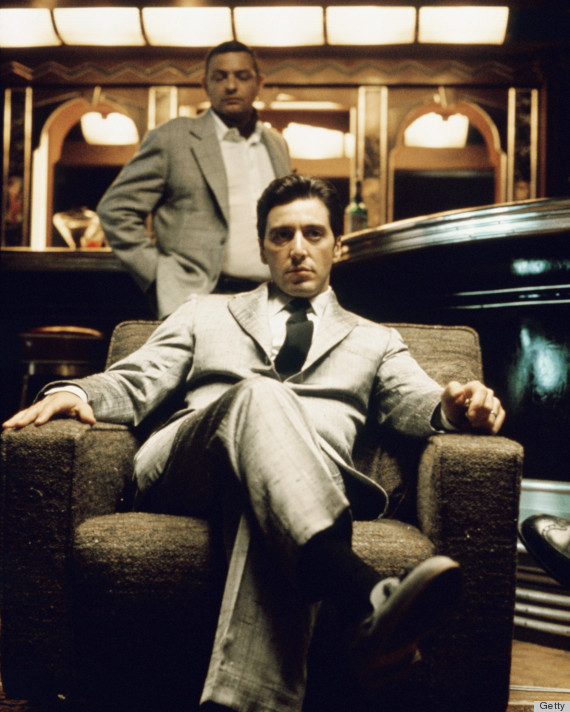
DIRECTOR: Francis Ford Coppola
CAST: Al Pacino, Robert De Niro, Diane Keaton, Robert Duvall, John Cazale, Talia Shire, Lee Strasberg
REVIEW:
A companion piece in the true sense of the word and regarded as arguably the best sequel ever made, The Godfather Part II (which was greenlit before the first movie was even released) only further deepens and enrichens the characters and themes from its predecessor while Francis Ford Coppola and Mario Puzo weave an even more ambitious web. Like The Lord of the Rings, The Godfather and The Godfather Part II are less a film series than one combined continuous story rightfully taken as a whole.
Continue readingThe Sting (1973)
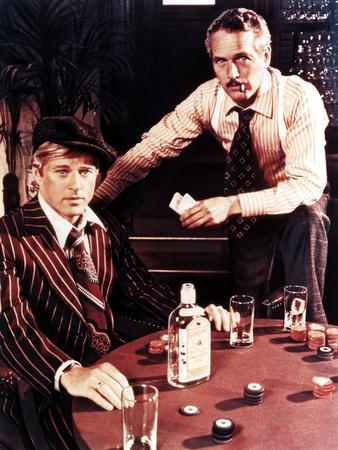
DIRECTOR: George Roy Hill
CAST: Paul Newman, Robert Redford, Robert Shaw, Charles Durning
REVIEW:
The Sting is a sort of grandfather of movies like Ocean’s Eleven; a slick glossy piece of entertainment with a twisty-turny crime caper plot and populated by some popular and photogenic movie stars getting back together and having some fun. Reuniting co-stars Paul Newman and Robert Redford and director George Roy Hill from 1969’s Butch Cassidy and the Sundance Kid and written by screenwriter David S. Ward, inspired by real-life cons perpetrated by brothers Fred and Charley Gondorff and documented by David Maurer in his 1940 book The Big Con: The Story of the Confidence Men, The Sting is an entertaining and enjoyable cinematic exercise that goes on its tangled way with slick assurance and panache, serving up plenty of “keep you guessing” twists and turns and reveals along the way.
Continue readingThe Day of The Jackal (1973)
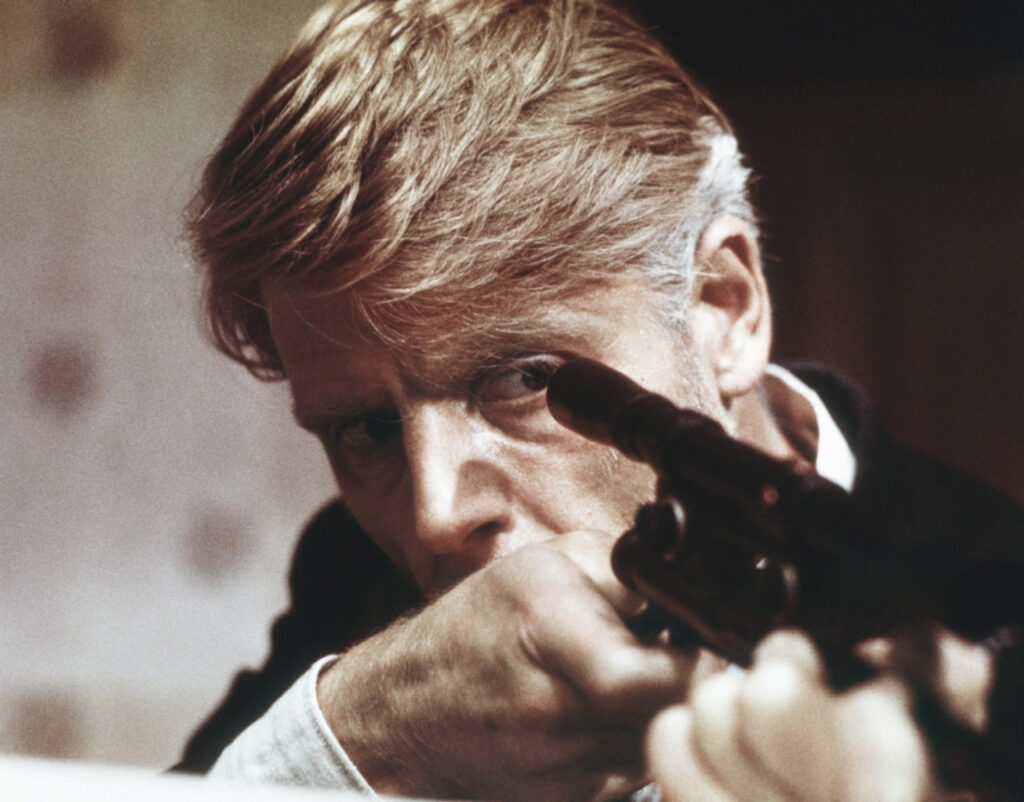
DIRECTOR: Fred Zinnemann
CAST: Edward Fox, Michael Lonsdale, Tony Britton, Derek Jacobi, Cyril Cusack, Ronald Pickup
REVIEW:
Fred Zinnemann’s The Day of The Jackal, adapted from Frederick Forsyth’s 1971 novel of the same name, is a masterfully executed piece of filmmaking methodically setting all its many pieces in motion like a fine watch. Its dry, almost documentary style and slow burn pace might not be appreciated by modern viewers demanding something flashier and more action-oriented (while this is considered a suspense thriller, it’s not an action movie and those who go in expecting such may be disappointed and bored), but for those to whom this kind of movie appeals, it’s hard to imagine this material being more masterfully executed, or an assassination plot and the investigation opposing it being written with more meticulous logic.
Continue readingThe Godfather (1972)

DIRECTOR: Francis Ford Coppola
CAST: Marlon Brando, Al Pacino, James Caan, Robert Duvall, Diane Keaton, Talia Shire, John Cazale
REVIEW:
Has any other motion picture defined a genre the way The Godfather did for the gangster film? Since its release in 1972 (receiving ten Oscar nominations and winning Best Picture), it has represented the gold standard to which all other mob movies are held. Yet The Godfather, adapted by Francis Ford Coppola from the novel by Mario Puzo (who also wrote the screenplay), is no mere gangland shoot-em-up (in fact, violence comes in short, jarring bursts, few and far between). What really grants the film its distinction is the core themes of family, an underlying character arc that ultimately resembles a Shakespearean tragedy, the careful technical accomplishment of the entire production, and the richness of Puzo’s script carefully weaving myriad subplots into a cohesive whole. Non-fans of the gangster movie genre might not be enthralled, and the nearly three hour runtime and slow burn pace represents a sizable commitment of time and attention, but for mob movie aficionados, this is as good as it gets, and skillful cinematic craftsmanship by any objective standard.
Continue readingPatton (1970)
DIRECTOR: Franklin J. Schaffner
CAST:
George C. Scott, Karl Malden, Ed Binns, Michael Bates, Karl Michael Vogler, Siegfried Rauch, Richard Münch, Paul Stevens, Tim Considine, Clint Ritchie
REVIEW:
Equally effective as a war film or a character study, Patton still holds up today chiefly due to the towering lead performance by George C. Scott. Rod Steiger, Lee Marvin, John Wayne, Robert Mitchum, and Burt Lancaster were all offered the title role, but after watching the film it is impossible to imagine anyone else but Scott. Patton can be enjoyed simply as one of the great film performances of all time. Scott does not simply play Patton; he has become so synonymous with the character that the real George Patton of WWII archive footage seems like an imposter. Credit is also due the capable direction by Franklin J. Schaffner, producer Frank McCarthy (a retired brigadier general who had worked for twenty years to make a movie about Patton), the intelligent, even-handed screenplay by Francis Ford Coppola and Edmund H. North, and the cinematography by Fred Kroenkamp, who enhances the film with his sweeping shots of Tunisia, France, and Germany. John Huston, Henry Hathaway, and Fred Zinnemann had declined to direct. William Wyler agreed but later left over script disagreements with Scott. Whatever difficulties they may have had during filming, the efforts of the cast and crew paid off, as Patton went on to win eight Oscars, including Best Actor for Scott (which he famously refused, calling the Oscars a ‘self-serving meat parade’), Best Picture, Best Director, Best Screenplay, Best Editing, and Best Production Design.